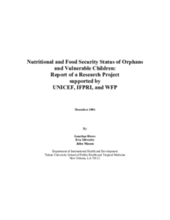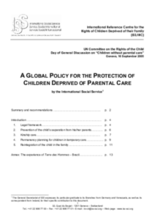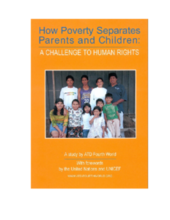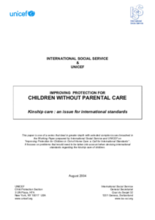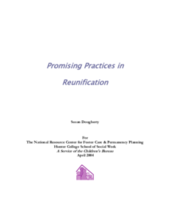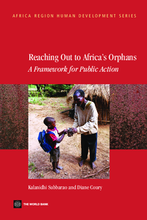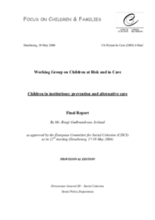Displaying 881 - 890 of 911
A report on the nutritional status of orphans in sub-Saharan Africa. Seeks to understand the relationship between child vulnerability and food security. Contains conclusions and recommendations relevant for future monitoring initiatives.
This paper presents a set of global policy guidelines for the protection of children without parental care. It recommends the need for a global understanding of best practices within the legal framework of the UN Committee on the Rights of the Child.
Toolkit for the founding and expansion of HIV/AIDS responses in development programs. Includes hands-on tools and support documentation.
An executive summary of lessons learned on preventing family separation in poverty stricken communities. Brief case studies from Guatemala, Haiti, Philippines, United States and Burkina Faso.
Outlines key findings of survey conducted to investigate the challenges faced by households caring for OVC in South Africa. Conclusion delineates six potential responses to community needs.
Outlines problems and issues in providing appropriate out-of-home care solutions. Advocates for development of more comprehensive international standards for out-of-home care.
A list of US programs and program approaches that influence family reunification outcomes. Relevant for social workers, policy-makers, and others involved in foster care, after care, and family reunification.
A detailed book providing evidence-based guidelines for approaches and interventions to best mitigate the various risks confronted by OVC.
This report contains an overview of alternative care in Europe, the effects of institutions on children, statistical information and the different approaches of child protection systems within Europe. It includes reforming institutional care, foster care, post-care support, and the role of the social worker.

